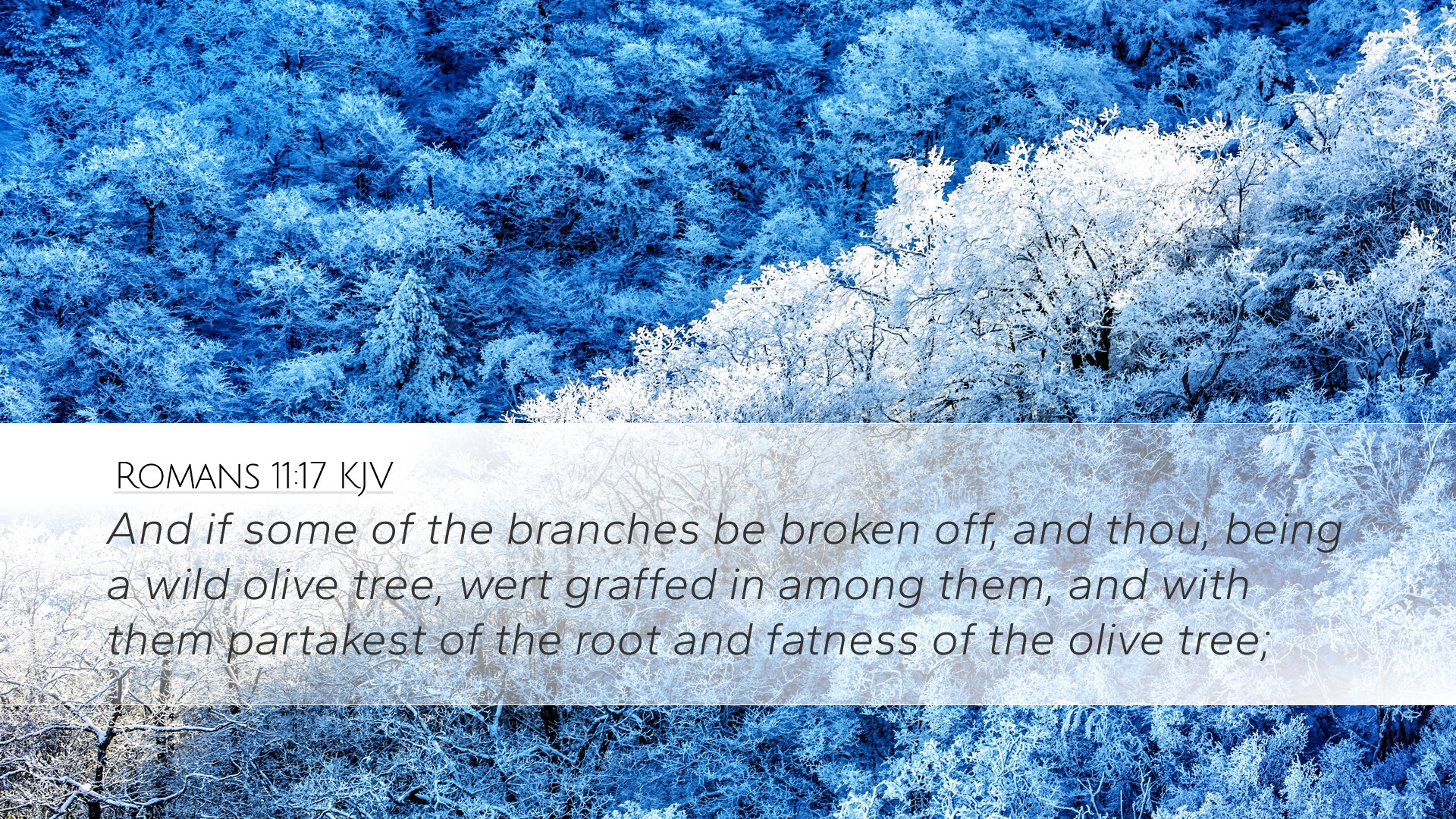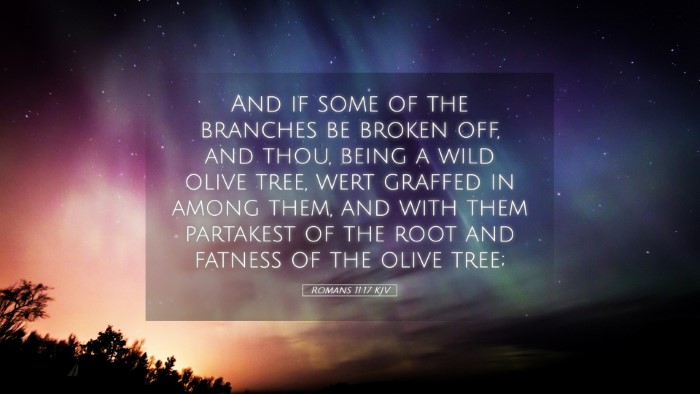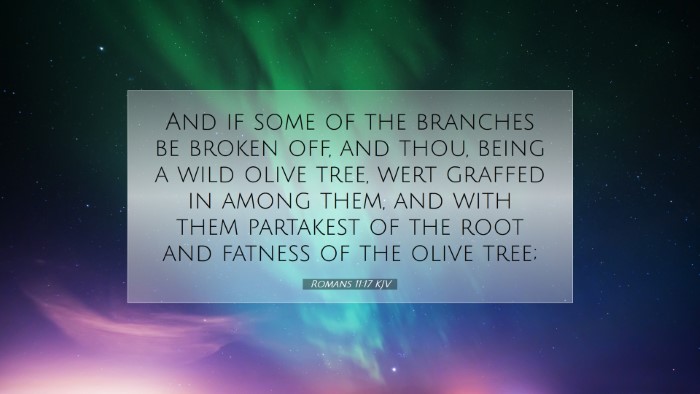Commentary on Romans 11:17
Romans 11:17 states: "And if some of the branches be broken off, and thou, being a wild olive tree, wert grafted in among them, and with them partakest of the root and fatness of the olive tree." This verse serves as a pivotal element in Paul's argument about the inclusion of Gentiles in the salvation plan of God and the relationship between Israel and the Church. The image of grafting here is significant and profoundly theological.
Contextual Background
To understand Romans 11:17 fully, we need to consider the broader context of Romans 11. In this chapter, Paul discusses the relationship between Israel and the Gentiles and emphasizes that God has not rejected His people, Israel. Rather, in their unbelief, some branches (the literal descendants of Abraham) have been broken off, allowing Gentile believers to be grafted into the blessings of God's covenant.
Grafting Metaphor Explained
Grafting is a horticultural technique in which a branch from one tree is inserted into the trunk or a branch of another tree, allowing it to grow and become part of that tree. Here, Paul uses this metaphor to illustrate how, through faith in Christ, Gentiles (wild olive shoots) are brought into the divine covenant relationship that originally belonged to Israel (the cultivated olive tree).
Commentary Insights
- Matthew Henry: Henry emphasizes that the grafting in of the Gentiles represents God’s mercy and grace. He sees this as an act of divine sovereignty where the wild olive tree becomes partaker of the root. The “root” symbolizes the patriarchs and the promises made to Israel, indicating that Gentile believers, though initially wild and unqualified for these blessings, can now share in the spiritual heritage of Israel.
- Albert Barnes: Barnes reflects on the nature of the “branches” that were broken off, suggesting they represent the unbelieving Jews. He elucidates that their unbelief is what led to their being cut off, while the Gentiles' faith allows them to be grafted in. This highlights the importance of faith in the life of believers, stressing that privilege is contingent upon one's relationship with Christ.
- Adam Clarke: Clarke provides a detailed analysis of the Greek terms used in this passage. He points out that the "wild olive tree" signifies the Gentiles, who, by nature, were alienated from the promises of God but are now included through the grace of Christ. Clarke also warns against arrogance in the Gentile believers, stressing the need for humility and recognition of God’s sovereign grace that permits their inclusion.
Theological Implications
The theological significance of Romans 11:17 cannot be overstated. It opens a discussion on the inclusivity of the Gospel and God's plan for redemption, which extends beyond the boundaries of ethnic Israel. This passage invites both Gentile believers and Jewish believers to recognize their interconnectedness in God’s redemptive plan.
Inclusion of Gentiles
This verse challenges any notion of exclusivity in God’s covenant. Paul’s argument reveals that inclusion into the family of God is by faith, and not by lineage. It serves as a reminder that God’s love and grace encompass all who come to Him through Christ, regardless of their previous status or background.
Warning Against Arrogance
As we consider this analogy of grafting, it bears a cautionary note for Gentile believers. While they are included in the covenant, they must not become prideful or dismissive of the Jewish roots of their faith. The metaphor implies a shared responsibility to honor God’s plan and the original covenant relationship with Israel.
Conclusion
Romans 11:17 serves as a profound reminder of God’s grace that transcends human boundaries and prejudices. It illustrates not just the act of Gentiles being brought into the fold of faith but the ongoing story of God’s faithfulness to His people. As we delve deeper into this passage, may we embrace our shared faith with humility and gratitude, recognizing that we are all partakers of the root and fatness of the olive tree, united in Christ, and called to share the Gospel with the world.


